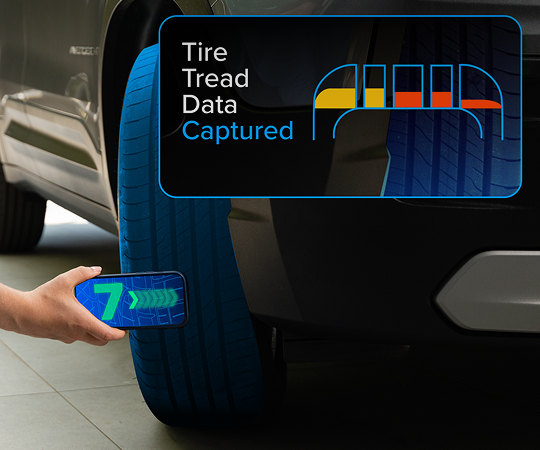
Why Tire Traceability & Recall Awareness are Vital for the Auto Industry
By Bryan Boatner, VP of Sales and Business Development at Anyline
While most of us are aware of what a DOT Tire Identification Number (or simply “TIN”) is, few know the true potential of the information behind these characters. Much like any other serial number, these eight to thirteen characters can reveal a wealth of hidden information about your tire when it’s plugged into a database or global system. This data includes the full tire specifications, the location of production, and most importantly, the date of manufacture.
At Anyline, we see the value of this data – not just for improving business processes, as we will describe below, but also for saving lives on the road. Tragically, there were over 770 tire-related fatalities in the US alone in 2017, and many more accidents caused by worn out, defective and recalled tires that should not be on the road.
That’s why we developed the Anyline TIN Scanner, an innovative solution for the automotive sector that enables anyone to scan and digitize tire identification numbers with their smartphone in the blink of an eye.
This technology is far more accurate than manual data entry, and up to 20 times faster. If you want the proof, check out our latest video to see it in action:
Understanding our tires means drivers can make better decisions, salespeople can give the best service and technicians can stop accidents before they even happen.
Here are just a few ways in which TIN scanning will improve tire traceability and recall awareness in the automotive industry.
Enhanced Traceability & Customer Service
Traditionally, tires are tracked by shops and retail locations via their TIN numbers. This number must be manually recorded each time, and then entered into a computer system, which reveals all of the database information related to that tire. This helps retailers and automotive shop technicians manage tire recalls and advise customers to replace their tire based on age and condition.
But the process of slowly typing out each character takes up valuable shop time that technicians could be using more efficiently and leaves their customers waiting for longer. Additionally, this mobile data capture solution significantly reduces the element of human error caused by the multi-step manual entry process. As we can see above, employees using the Anyline tire scanner can offer a better and more comprehensive service to drivers in a fraction of the time.
Getting under the Hood
Smartphone-based scanning technology is becoming more widespread, and today, reading characters such as printed serial numbers and ID documents is relatively simple. But the ability to read embossed black text on the side of a black tire is an entirely different story.
This extremely low-contrast process requires an incredible amount of development and engineering, especially when you need to trust your results with industry-leading accuracy. That is exactly what the Anyline mobile TIN scanner does, with the processing taking place entirely on-device in milliseconds.
Saving Time, Resources & Lives
Across the automotive industry, we need to stop wasting time typing out TINs. The Anyline TIN scanner won’t just save you time, it will make your team more mobile and efficient, increase data entry accuracy, and bring your customer service to the next level.
Additional features like the capability to scan vehicle identification numbers enable you to link the data of tire inspections and tire exchanges to individual vehicles – raising the efficiency of workflows and business operations.
If you think this solution is right for your business, we would be delighted to talk with you about the integration of this new technology. Let’s make processes smarter – and our roads safer – one scan at a time.




